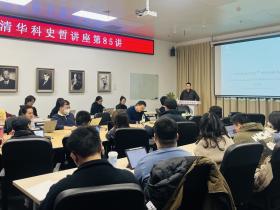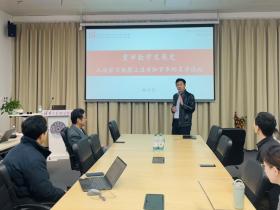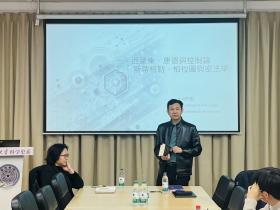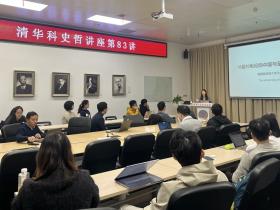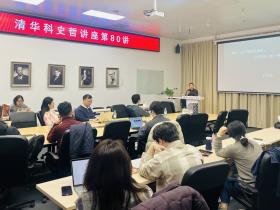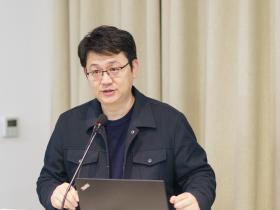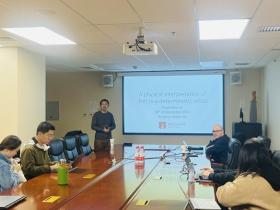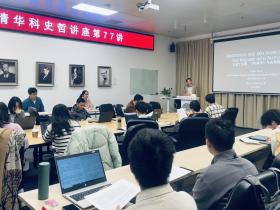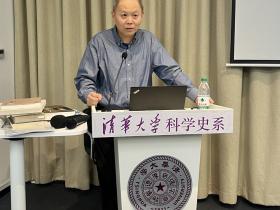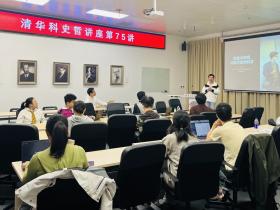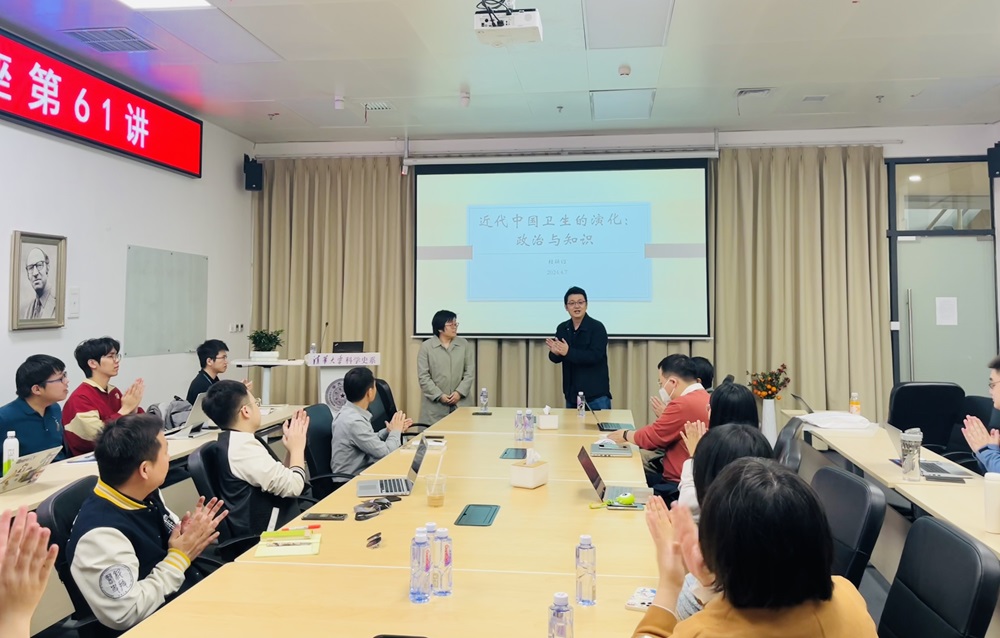
On April 7, 2024, the Department of History of Science of Tsinghua University held Lecture 61 of the THU History and Philosophy of Science Lecture Series, With Professor Du Lihong from the Department of History of Sun Yat-sen University (Zhuhai) and Sun Yat-sen University School of Medicine (Shenzhen) to give a report on the theme "Evolution of Health in Modern China: Politics and Knowledge". The lecture was hosted by Shen Yubin.
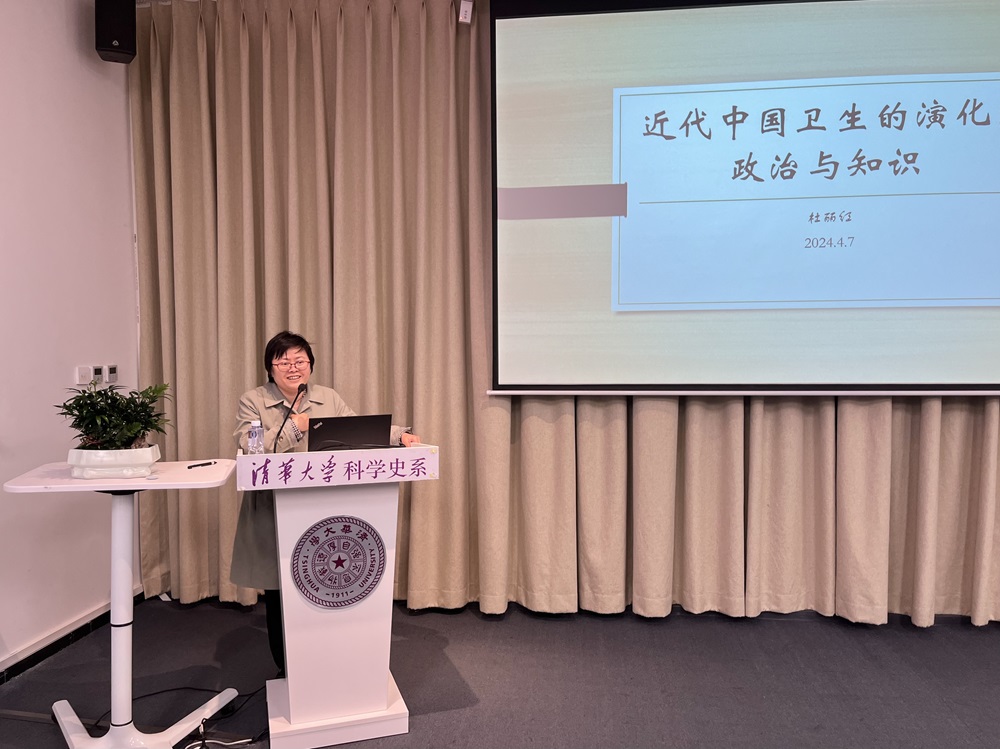
This report revolves around Professor Du Lihong's review of health history research, experience and future direction. Professor Du Lihong first shared her opportunity to enter the field of urban health history research and the thinking process and reflection of entering medical and health history through institutional history methods reflected in the first monograph " Institution and Everyday Life:Public Health in Beijing,1905-1937". "Institutions and Everyday Life" focuses on dealing with the huge tension of ideal hygiene forms and reality in the implementation and operation of the public health system in Beijing in the Republic of China. In the second monograph "Northeast Rat Epidemic: Western Epidemic Prevention in China", Professor Du present more historical complexity and trace the origins of history in health history research, so he chose to focus on the special and influential Northeast Rat epidemic incident with the overall historical context. Professor Du pointed out that behind the emergencies, the local society’s response and organizational methods hidden in daily life need to be further explored. Professor Du shared her current research on the history of knowledge evolution. The analysis of institutional history and event history is inseparable from the support of medicine. The manufacturing and evolution process of medical knowledge, as well as the application, influence and restrain life and society of knowledge such as discipline, knowledge changes, and health regulations, naturally become objects that need in-depth investigation. Professor Du further introduced her current understanding of hygiene attributes and pointed out that hygiene aims to maintain public health through prevention rather than treatment. Early health has more established boundaries between sick and healthy people, emphasizing behavior and environmental transformation, which rely on the state's management of municipal and urban areas to achieve. Nowadays, public health not only prevents diseases, but also interferes in public life in advance, using knowledge to guide and promote public health. In the evolution of health, public health itself is also undergoing a huge change. The ultimate realization of public health depends on the power of the state, and therefore has both political attributes and intellectual attributes. Professor Du said that behind the transformation of health politics is also the transformation of knowledge. The transfer of public health knowledge from traditional epidemic prevention to public health generated on the basis of the professionalization of modern medicine must be accompanied by a certain access mechanism, and public health knowledge has naturally become a tool for power operation and shaping various border social identities. This is a reflection of the two aspects. Finally, Professor Du shared about her outlook for the future research field. Knowledge production is global, and issues such as early international conventions and the link between the International Health Organization and China's health development, as well as the exchange and interaction of health knowledge, technology and public health, environment and public health, and health knowledge between China and the world in ancient local societies are worthy of exploration. She concluded that hygiene is an important aspect of understanding China and the world.
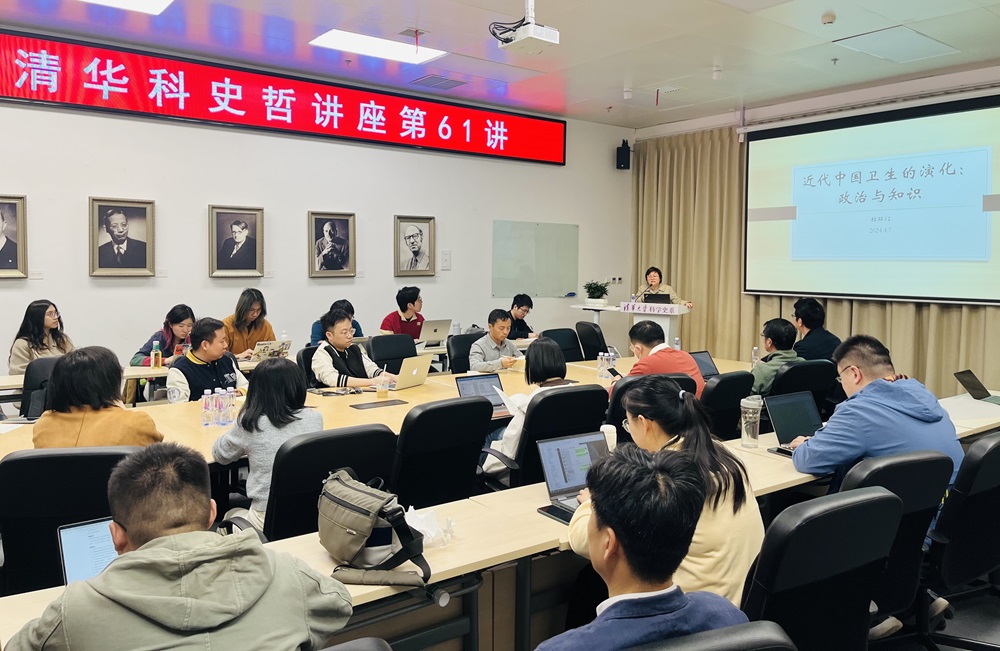
After the lecture, the audience of the Department of History of Science and Du Lihong, had a heated discussion on the possibility of medical political history, the dispute between Chinese and Western medicine in plague in Northeast China, capital flow in public health, and the criteria for knowledge acceptance.
Written by : Meng Haoyu Audit : Shen Yubin


